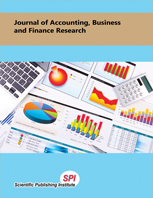How Effective is Monetary Policy in the Presence of High Informality in Nigeria
DOI:
https://doi.org/10.20448/2002.102.84.93Keywords:
Informal economy, Monetary policy, Monetary policy transmission, ARDL, Nigeria.Abstract
This study investigates whether the existence of high informality in Nigeria dampens effective transmission of monetary policy variation to retail rates. Using time series data from 1981-2018, the study adopts ARDL model to estimate both the long and short-run impacts of a high informal economy on the effectiveness of monetary policy. Findings reveal that changes in monetary policy rate has a significant positive impact on retail rates and that, without accounting for informality in the long-run, the transmission of monetary policy to commercial banks' average lending rate is about 95 percent. In addition, the study finds that, in the long-run, informality dampens the effectiveness of monetary policy in Nigeria through the interest rate channel by at least 72 percentage points. The authors, therefore, conclude that high presence of informality in Nigeria dampens the effectiveness of the monetary policy and that the size of the informal economy and commercial bank lending rate are positively related.


